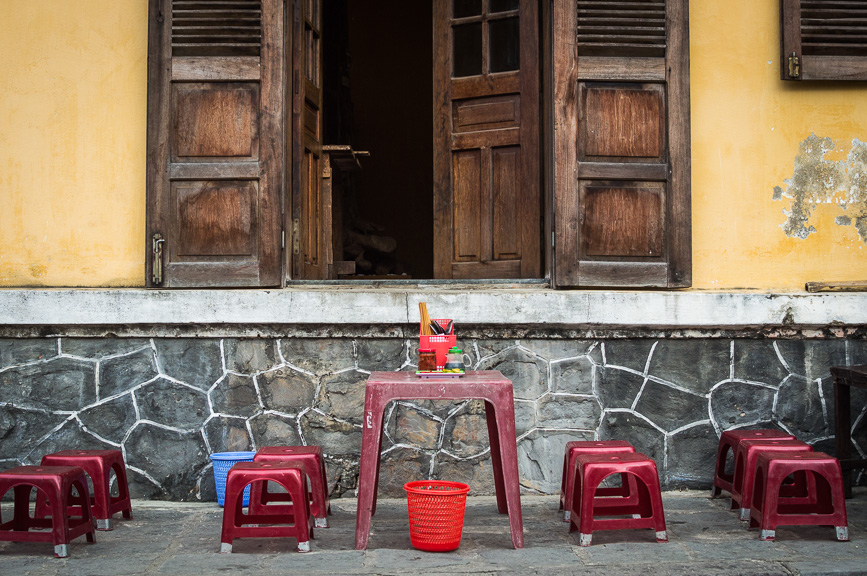
Vietnam. The hot belly, the fiery stomach, the Mecca of street food. The place to walk down an alley, follow your nose, pick a dish and pull up a red plastic stool. Squat with your knees bent at your waist and dig in.
Street food does not require a guide. It is an independent and proud promoter of itself. It is an expert of its art, usually only one dish is chosen, perfected. All laid out for you to see, there is less guessing involved, less risk to calculate, what you see is what you get. And what you get anywhere in Vietnam is very VERY good.
To be honest, I did not research much before we arrived in Vietnam. I knew I wanted to eat. A lot. I remembered having the best noodle soup in a small stall serving only that in Hanoi when I was last there. It was over ten years ago, but I could still taste the fresh herbs in the burning broth against my tongue. A dish no bigger than a large coffee cup, but with the flavours of a hundred different bowls.
So we started eating. We started walking and stopping and eating again. Soon, we found our mission.
If you are a lover of Vietnamese food or haven’t been living under a culinary rock for the past couple of years, chances are you have tasted or heard of the Bánh Mì. To call it a sandwich would be unfair, the darling of trendy new cookbooks and all fusion cooks out there, everyone seems to have developed their own version of this franco-vietnamese export. Airy baguettes buttered with rustic pâté, filled with layers of pork cold cuts, pickled crunchy vegetables, a spoonful of secret sauce and a garden of herbs can easily outshine the tried-and-tested jambon fromage from the corner bakery.
But “Bánh” loosely meaning “cake” and “Mì” meaning “wheat” is only the beginning of the bánhfrenzy, because did you know that it’s a Bánh-Eat-Bánh world in Vietnam?
Every corner and every town has its favourite bánhs. To make the competition even tougher, different regions even have variations of a similar bánh. All fighting for the title of Best Bánh.
Sounding more like “bun” as in hamburger bun, this category of sweet or savoury delights is endless. They can be steamed, baked, deep-fried or boiled and when I found out that many of them were made with rice flour there was no stopping me. We were on a new mission to try every “Bánh” out there. We would have to go back many more times and walk many more streets to try ALL of them, but here are some of our favourites.
#1 Bánh Căn
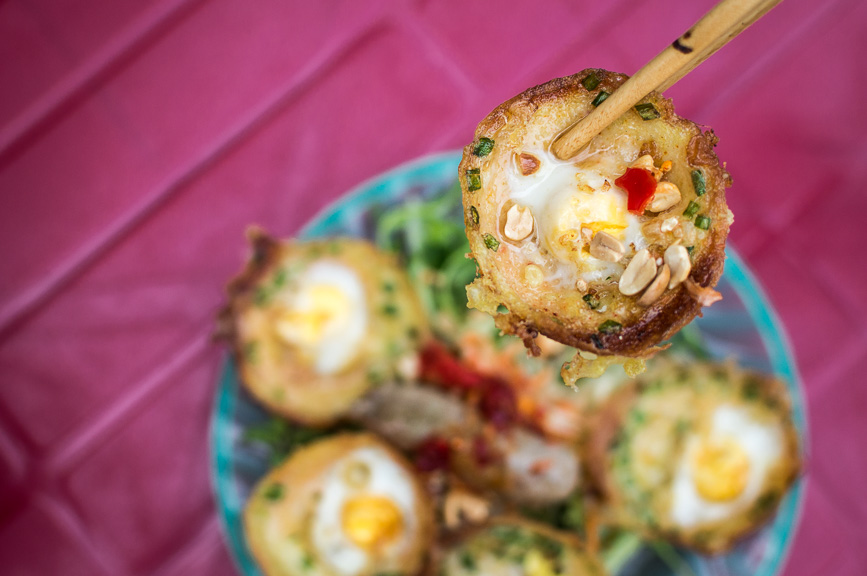
Our hunt for bánh began as we left the main streets of Hoi An’s Old Town. We cycled towards the Tan An market where we found a lady sizzling up little golden yellow fritters. “Bánh” written on the sign hanging by her stall? Check. Little red stools? Check. A bunch of people already there devouring plates of food? Check. This was going to be yum. And it was. Bánh Căn meaning “cake base” are turmeric-laced rice flour fritters dropped like pancake batter into hot oil on a special pan with small cups. A quail egg is cracked into each cup making every bánh căn crispy, chewy and rich at the same time. Originating in the kitchens of the matriarchal Cham people, this popular dish of the southern and central region of Vietnam is topped with young papaya salad, coriander, mint, chives, peanuts, a full pork sausage and of course the mandatory nước chấm sauce. Don’t forget the chilli.
Its bánh cousin: the Bánh Khot
#2 Bánh Xeo
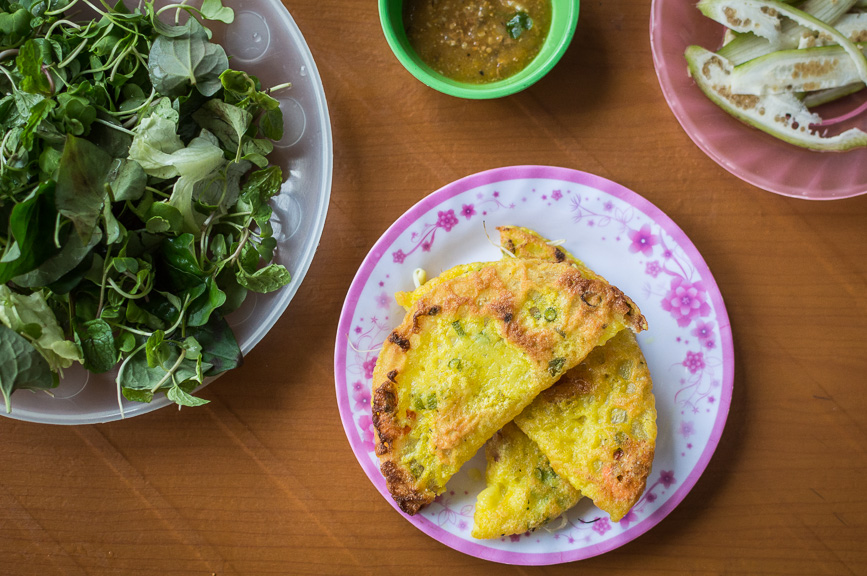
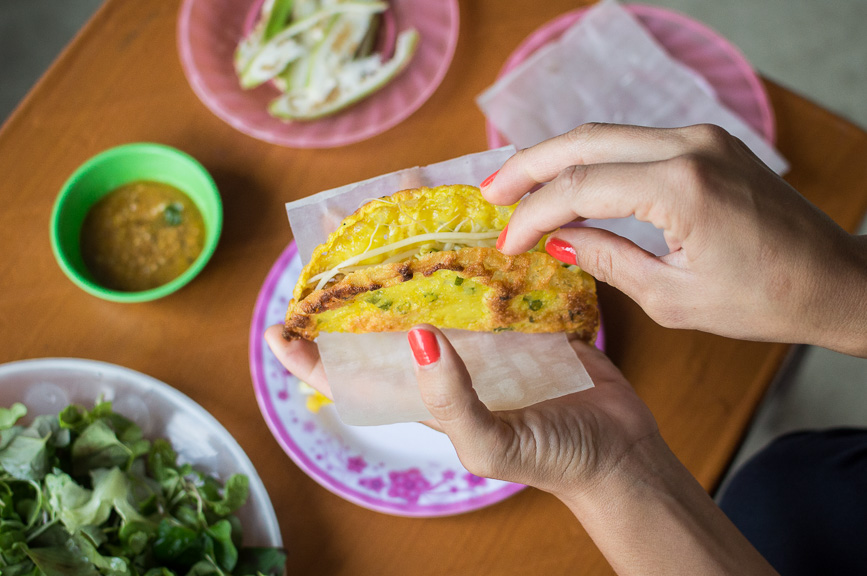
Bánh Xeo is something I have been dreaming of eating since I read my first Vietnamese cookbook, so this was one we were keeping our eyes open for. As we tried to escape the crowds of Hoi An, we ended up through the rice fields and into a quiet residential neighbourhood. Violet, blue and white houses lined the cracked concrete path, occasionally a cat would lazily emerge from a porch, but otherwise there was no one in sight and it was the last place I thought I would fulfil my food fantasy. Some days you get lucky. A sign was shining in all its wooden glory, daring me not to stop – Bánh Xeo. We parked our bikes and Nguyen Bich came out right away. This time the stools were green and just as low. In the outdoor kitchen at the front of her home, Bich whipped up some fresh Bánh Xeo under my curious eyes and showed us amateurs how to eat them properly when I failed to keep my wrapping intact. Literally meaning “sizzling cake”, this savoury crepe is like the big sister of the Bánh Căn. Often also turmeric-laced, the coconut rice flour batter is dropped into a blazing skillet and while cooking, slices of fatty pork, shrimps, spring onions and bean sprouts are added before the whole shebang is folded into a beautiful half moon. The fun is in the eating, extra herbs tucked in there before wrapping with rice paper to soak up the grease and dipping it in Bich’s homemade sauce of fermented soy bean, pork liver and toasted peanuts. Success.
Its bánh cousin: the Bánh Khoai
#3 Bánh Bao Bánh Vạc
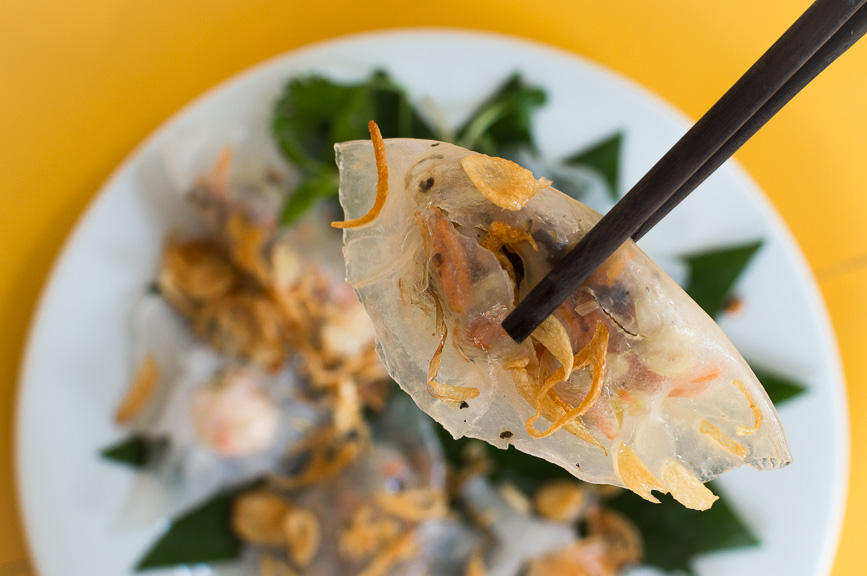
Ah, the White Rose. An elegant name for an elegant dumpling. Somehow this signature dish from Hoi An manages to be delicate and chewy at the same time. Legend has it that the French named them for their flower petal resemblance and that only one family in Hoi An keeps the precious secret recipe. The translucent rice flour wrapping is said to be made from rice that has been grinded and filtered by local well water 15 to 20 times, rolled out so thin and clear that you can see every fresh baby shrimp and mushroom stuffed inside it. Add spiced pork and onions to the mix and serve with crispy deep-fried garlic chips. Fairytale dumplings anyone?
#4 Bánh Tráng Trộn
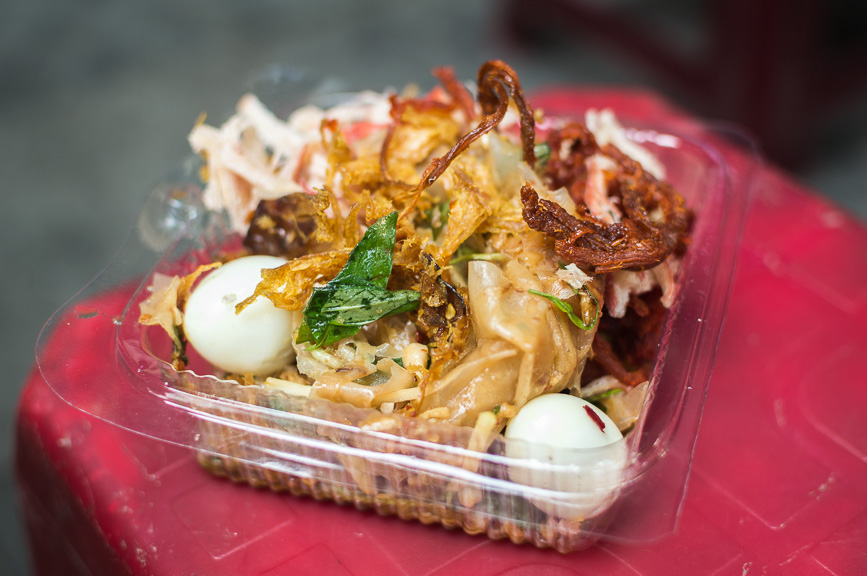
Vietnamese street food is in love with wrapping. Extremely portable and a clever way to keep your hands clean, juicy meat skewers, greasy crepes, everything can be wrapped in a leaf or the ubiquitous rice paper. But leave it to the genius who came up with Bánh Tráng Trộn to find a way of using rice paper other than as a food wrapper. Possibly the most colourful dish we had in Vietnam, Bánh Tráng Trộn manages to combine sweet, salty, spicy, crispy, chewy, creamy, fresh, dry, all in one go and I still don’t think I have covered all the textures for you there. Bánh Tráng meaning “coated cake”, a.k.a. rice paper and Trộn meaning “mix“, was obviously conjured up by someone craving, well everything.
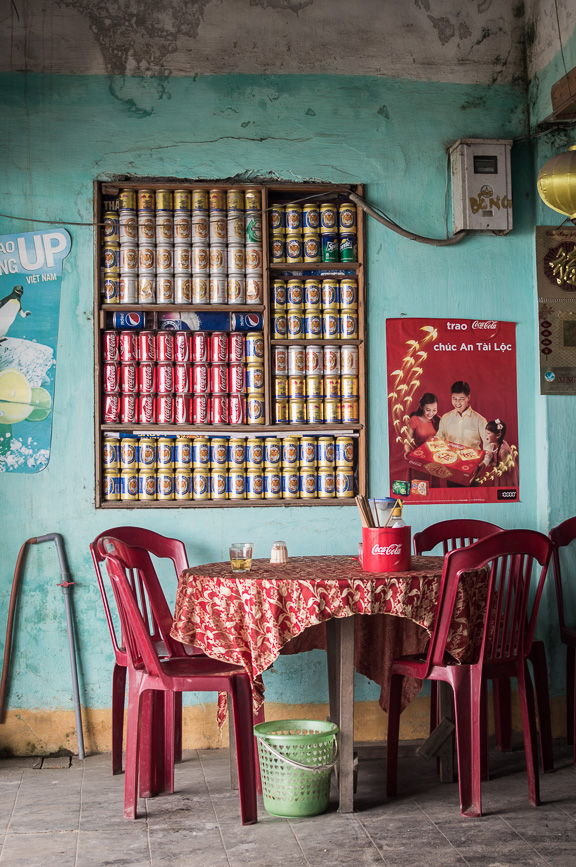
We were scouring for dinner in the Old Quarter of Hanoi when we passed a woman with a cart full of plastic jars. Looking more like a savoury pick & mix stand, this bánh drew us in. Raw rice paper strips are mixed with chillies, beef jerky, fried garlic, dried squid, herbs, peanuts, green mango shreds, lime juice, spring onions, quail eggs, sesame seeds, nigella seeds, the list goes on. The dressing softens the rice paper into soft noodles, making this an incredible no-cook salad. The best part is you eat them with skewers not chopsticks, which means taking more time to decide which combination will go on your skewer with every bite.
The flavours punch you into some kind of giddiness and it feels like you have gotten away with eating something very naughty. As our lips swelled from the chilli, we only needed to share one between us to feel satisfied. Wow.
#5 Bánh Ram Ít
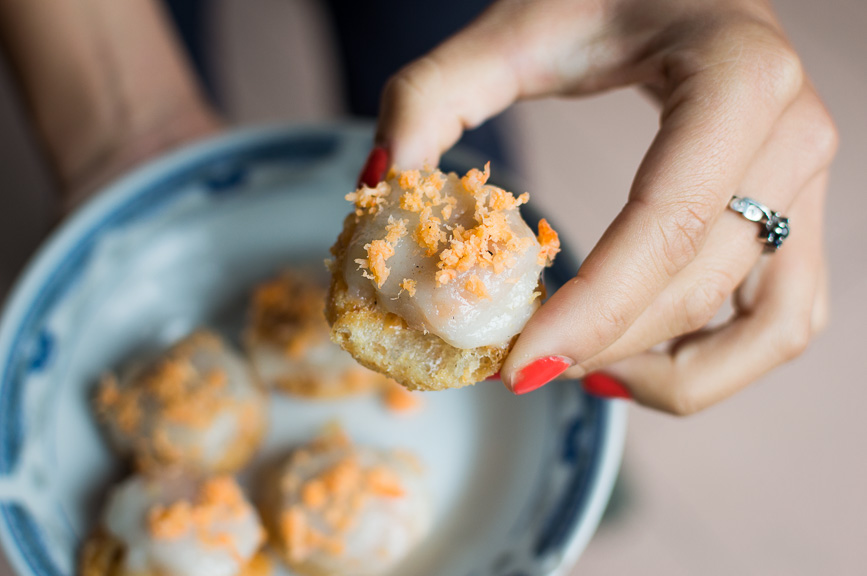
Once we were determined to go ahead with our bánh mission, I did start going around with a list in my back pocket and Bánh Ram Ít was high at the top of it. Originally from the imperial capital ofHuế, the heart of Central Vietnamese cuisine, these little treats lured me in with their combination of sticky and crispy. It took us two days of navigating the heavy rain to find a family who made them, but find them we did. This is not just a bánh made from rice flour, but glutinous rice flour and it doesn’t get stickier than this. A bite-size savoury mochi stuffed with shrimp and pork is served on top of a deep-fried rice cake and sprinkled with even more minced shrimp. Dipped in more nước chấm, a single bite does not get more perfect than this.
#6 Bánh Gio
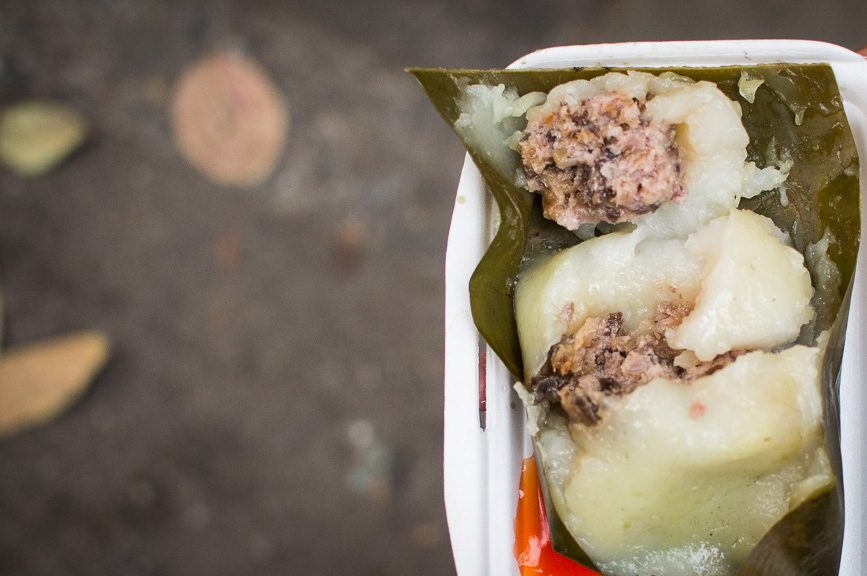
The Bánh Gio is not the most photogenic bánh and does not sound like much on paper, until, you try one. We were chatting to our new friend Phuong on one of the streets in the Old Quarter of Hanoi when he stopped mid-sentence to say, “you have to try this.” Waving over an elderly lady carrying two baskets on a rod balanced over her shoulder, he emphasises, “this is the best bánh gioin town.” Baskets filled with triangular banana leaf-wrapped rice flour dumplings, she picks one and unwraps it onto a styrofoam plate before adding a generous dash of chilli sauce on the side. Once cracked open, it reveals a filling of minced pork, mushrooms and onions. This is one of the most delicate things we have eaten in Vietnam. The steamed rice flour pyramid is flavoured with bone broth and melts in your mouth. It is perhaps the best interpretation of comfort food which does not rely on broth, in a country that does soups really really well. “She has been cooking bánh gioand selling it fresh since I was a kid,” Phuong explains, and we hope she carries on for a long while yet.
#7 Bánh Nậm
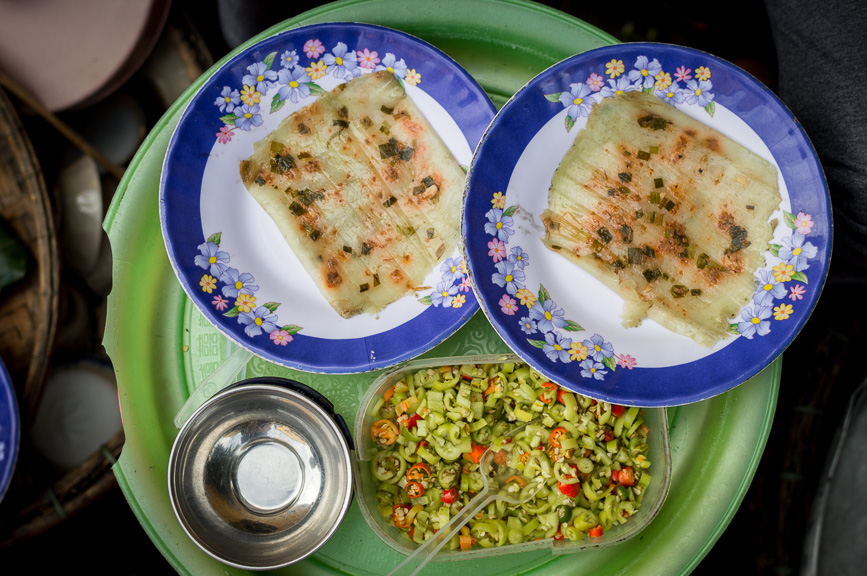
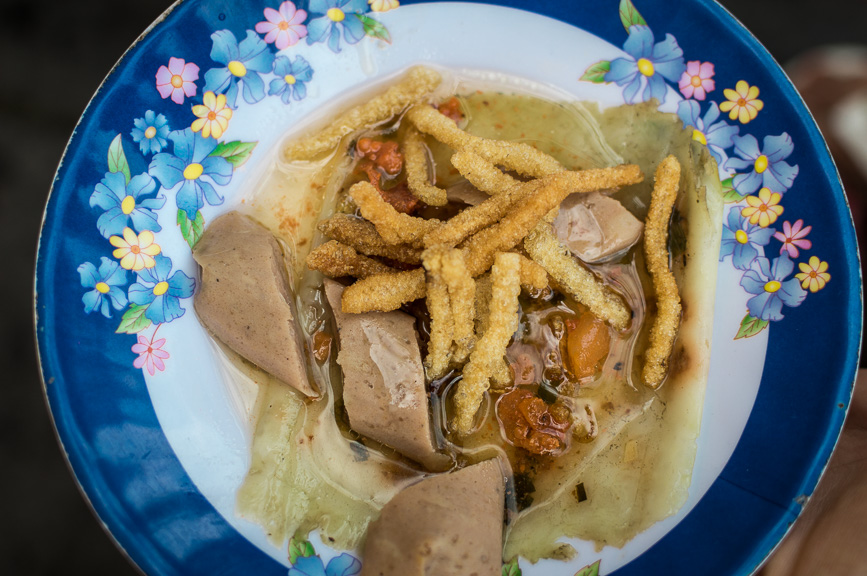
Bánh Nậm is like the slim version of bánh gio. Originally from Huế, we actually had our best one in Hoi An. We met Hao on her corner in the Old Town of Hoi An, holding court over several red stools packed with local shop vendors on their afternoon break. Street food in a way is the epitome of the shared table. Strangers come together and sit closely to devour something they have all chosen and if it is good, they will always keep coming back for more. Queen of her domain, Hao prepared trays of food that people took into their shops to share with their neighbours without ever getting up from her seat. Everything was in reachable distance to prepare her two signature dishes, one of them being bánh nậm.
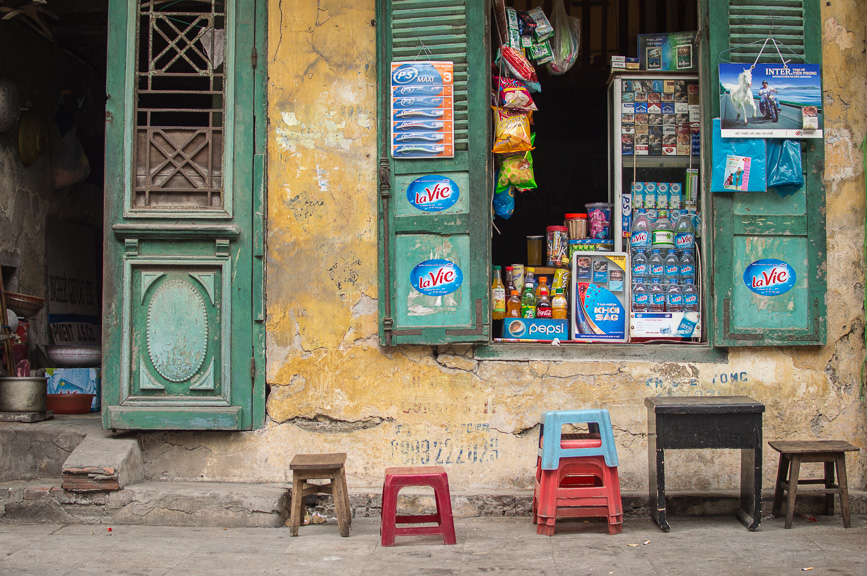
A thin layer of rice flour dotted with minced shrimp and spring onions is wrapped in banana leaf to be steamed then topped with slices of pork sausage, more chillies, nước chấm and crispy crackers for that extra crunch. Soft, salty, juicy, crunchy, yet another dish reflecting the layers of flavours and textures that Vietnamese cuisine has perfected.
#8 Bánh Bèo
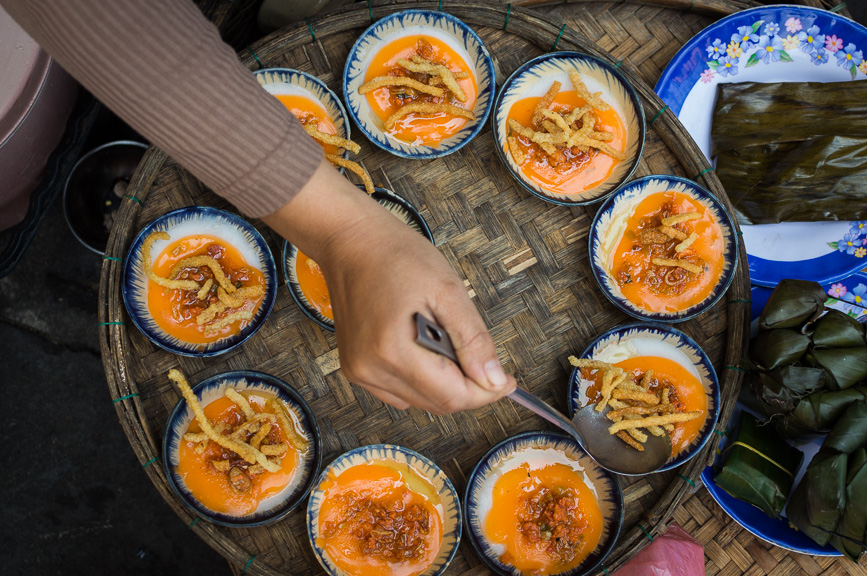
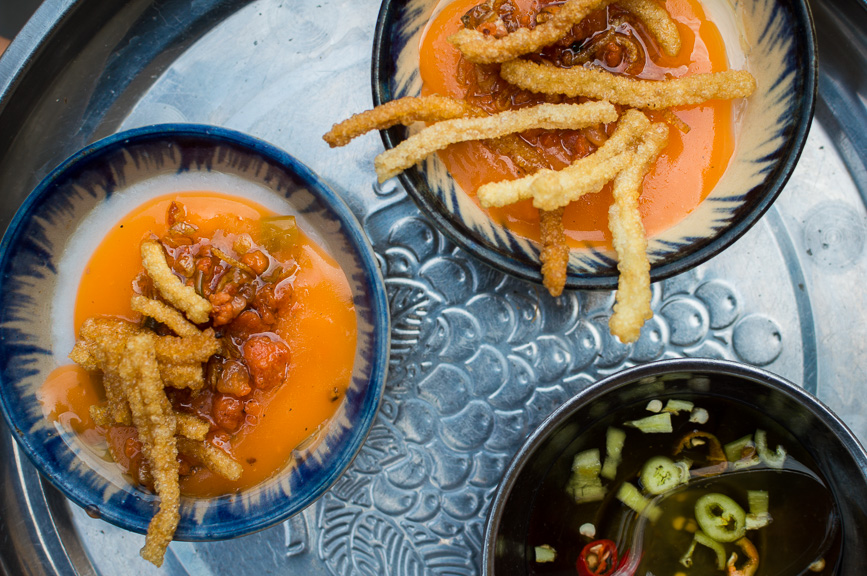
What really blew our minds though, was the other dish in Hao’s repertoire – Bánh Bèo. Served in individual little plates, this is every foodie’s dream portion size, but of course you can never stop at one. The presentation makes them the prettiest dish we have had in Vietnam and one of the most fun to eat. These “water lily” cakes named for their shape, also hail from Huế. There seems to be a trend for small bite-sized dishes from Huế, which supposedly were created to satisfy the Emperor’s palate and imagination. Who would argue with cute little rice flour cakes instead of a big block of steamed dough? Decorated with dried shrimp, scallions, mung bean paste and crispy shallots, they are out of this world.
Hao learnt everything from her mother who still accompanies her to the market every morning for ingredients and helps her cook for a few hours before she brings them out to sell. She has been doing it for two years now, but still says her mother is a better cook than her. After trying these bánh bèo though, we’d have to argue that it would be difficult to find a better version.
#9 Bánh Cuốn
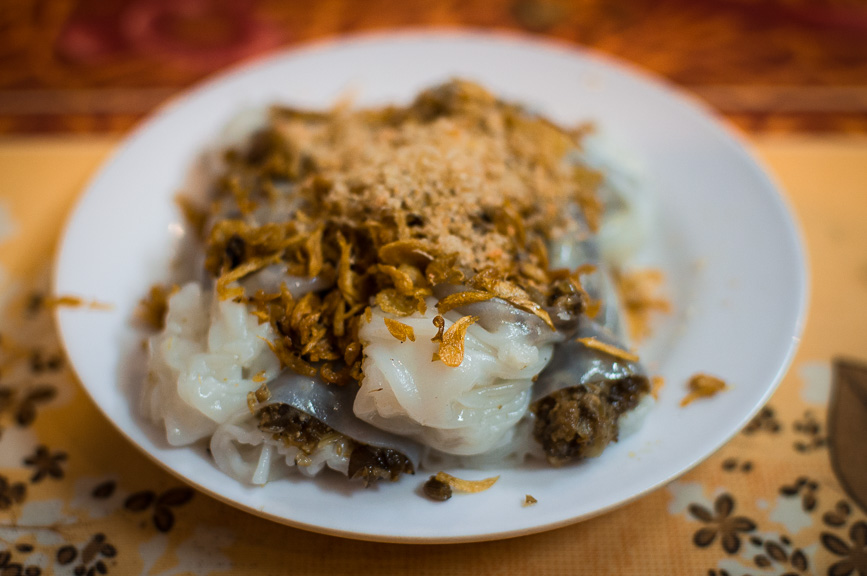
Aside from Bánh Mì, Bánh Cuốn was the only bánh I had tried before going to Vietnam. Quite popular on Vietnamese menus around the world, this fragile rice flour roll is a recurrent favourite. But I have never had one as good as the one we had in Hanoi. Literally meaning “rolled cake”, this is Vietnam’s version of the Chinese 腸粉cheung fun. A lady was seated at the edge of her stall beside a steamer covered with a metal plate onto which she drizzled a fermented rice batter and quickly smoothed it out like a crepe maker would. With speed and grace, ground pork is layered with wood ear mushroom and sprinkled with chopped shallots. Fold and roll, fold and roll, it is served up just as quickly with a shower of deep-fried garlic chips and fresh mint and coriander. Alongside a bowl of diluted nước chấm for dipping, this needs to be eaten hot, straight off the steam.
#10 Bonus Bánh
Your turn! What did we miss? We’ll let you fill in the blank and tell us your favourite “Bánh” from Vietnam! Not that we need another excuse to make us go back and eat our way through Vietnam again ASAP.
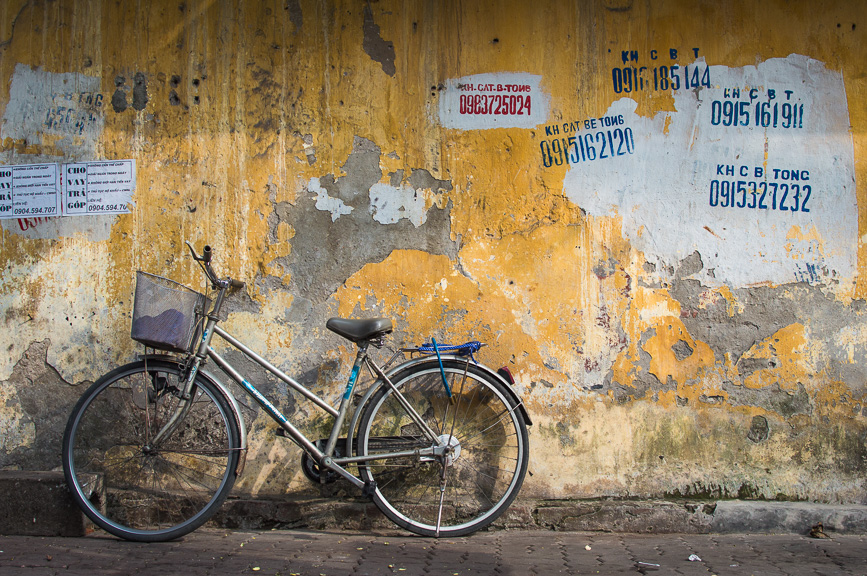
This article was originally publish by our friends at Funnelogy on their website.

